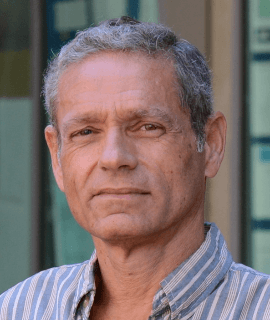Title : New Nanostructures for Increased Selectivity and Stability in Catalysis
Abstract:
One of the major challenges in heterogeneous catalysis is the preparation of highly selective and robust catalysts. The goal is to be able to synthesize solids with stable surfaces containing a large number of specific surface sites designed for the promotion of a particular reaction. New synergies between surface-science studies and novel nanosynthesis methodology promise to afford new ways to design such highly selective catalysts in a controlled way. In this presentation we will provide a progress report on a couple of projects ongoing in our laboratory based on this approach. Platinum-based catalysts have been prepared for the selective trans-to-cis conversion of olefins, with a design based on early surface-science work with model surfaces and quantum mechanical calculations that indicated a particular preference for (111) facets in promoting the formation of the cis isomers. We are currently extending this research by using the concept of "single-site catalysis" with Pt-Cu bimetallics for the selective hydrogenation of unsaturated aldehydes. In a second example, new metal@TiO2 yolk-shell nanomaterials conceived for both regular and photo-induced catalytic applications have been used to promote CO oxidation at cryogenic temperatures and to suggest that in photocatalysis the role of the metal may not be to scavenge the excited electrons produced in the semiconductor upon absorption of light, as commonly believed, but rather to promote the recombination of the adsorbed atomic hydrogen initially produced by reduction of H+ on the surface of that semiconductor. New mixed- oxide surfaces are being designed using atomic layer deposition (ALD) as well. Additional examples include the use of "click" chemistry to tether molecular functionality on porous solid materials and design tandem catalysts.
Audience take-away:
- They will get exposed to the latest nanotechnologies as they are being applied to catalysis;
- A discussion will also be provided on ways to characterize these catalysts;
- Focus will be placed on the need for modern catalysts to be highly selective, and on how to achieve such selectivity.


